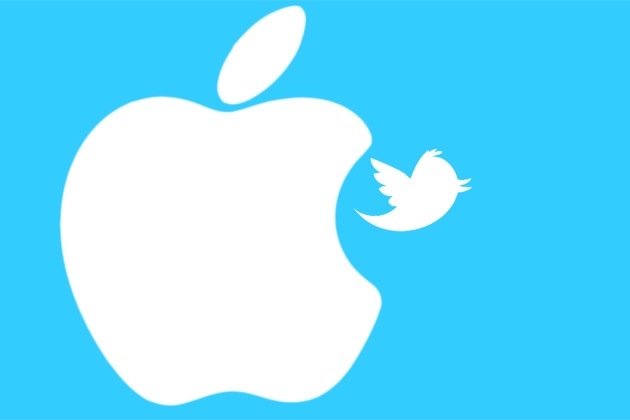There were many responses from the Facebook (FB) – Instagram deal.
One of the more interesting ones to emerge at the end of last week was Phil Schiller’s response via 9to5Mac. The SVP of Marketing for Apple (AAPL) has deleted his Instagram account and declared that Instagram had jumped the shark.
Read more after the jump!
Apple has made a point of calling out some of its favorite apps over the last couple of years. Steve Jobs talked about how people were using Yelp (YELP) more for searches on their iPhones than Google (GOOG) search a couple of years ago. And Yelp’s CEO, Jeremy Stoppelman, was invited to the last Apple event. At that event, Tim Cook took time to point out how Twitter’s iPad app was so superior to the Android version available for their tablet.
There is a narrative that Apple likes to advance which is that the best and most apps are on the iOS platform compared to others. This is true up until now.
Instagram was another “poster child” app that Apple could use in this story. It was (is) the top mobile photo sharing app. It was beautiful. And it started on iOS and – up until a couple of weeks ago – wasn’t available on any other platform. Then it launched on Android and – a couple of days later – it was bought by Facebook.
Apple’s strategy with apps to this point has been: let a thousand flowers bloom – we’re Switzerland. It can no longer be.
Instagram is now – forever more – a Facebook company running on the Facebook platform.
Letting a thousand flowers bloom works as long as all of those flowers are small and private companies with less power than either Apple, Facebook, or Google. However, what if they suddenly become part of an arms race between those three companies battling for future platform supremacy?
The loss of Instagram doesn’t, in itself, diminish the power of iOS. But what if Google bought Twitter tomorrow? And then Facebook bought Yelp? Or Microsoft (MSFT) bought Square? The mobile world would definitely change over time.
One of the lessons of Google’s buyout of YouTube in 2005 is that there are only so many landmark properties on the web. Why wouldn’t there only be so many landmark mobile apps? Do you have time to scroll over to page 12 on your iPhone to check on particular apps?
I would love to see some research study about percentage of time we spend on page 1 apps versus, 2, 3, etc.
Twitter has clashed before with opening up their information to Google and they also have distanced themselves with Facebook. A couple of years ago, Jack Dorsey worked out a deal with Apple to do a deep integration with iOS. It’s been phenomenal for Twitter sign-ups. In exchange, I’d be amazed if there wasn’t a deal between the parties to delay Twitter app development for other platforms.
If Google was to buy Twitter tomorrow, however, it would be a blow to Apple, Phil Schiller, and iOS. There’s not going to be another real-time social updating app, with all due respect to Path and other apps trying to do that. It’s the difference between YouTube and any other video site.
But the power of Twitter is not its popularity for updates today, just as the power of Facebook isn’t its 845 million monthly users today and the revenues they currently generate. The real power of Twitter is the data it’s gathering on each of its users and how it might use that data in the future (especially for advertising and transactions).
The reason Facebook terrifies Google today isn’t its trailing $3.7 billion in 2011 revenues, it’s what they might do in revenues in 5 years as they start to mine all the localized data they have on you to serve up ads.
Twitter has the potential for similarly rich data associations over time. To really harness that potential however, you need artificial intelligence horsepower. Guess what, Apple has it spades. That’s a key part of Siri and it could be used greatly for Twitter over time.
Essentially, if Apple was to buy Twitter today, it would be a play on unleashing iAd – although perhaps not for 5 years from now in any great monetary fashion.
Twitter wouldn’t be able to deliver the same kind of results on their own.
What’s more, Apple would be able to drive much better sign-ups and usage through the launch of Apple TV. There’s going to have to be a better way to serve ads once iTV is unleashed. That’s going to require iAd to be a hit and to do something very different and personalized compared to anything we’ve seen before. I would say that the chances are great it’s either going to be Facebook or Twitter (with Apple) that cracks that nut.
What would the deal cost? Given Instagram’s price tag and Facebook’s likely valuation, Twitter could cost a minimum of $10 billion. Isn’t that crazy for a company that had negligible revenues last year?
Twitter is beachfront property in the mobile world. It’s a key for iAd to be able to deliver a completely new kind of ad service in the next ten years. And it’s future revenue potential has nothing to do with its revenue last year.
Is $10 billion a lot of cash? Sure. I don’t mean to sound flip about spending it.
But the real question is: does Apple have that kind of money to spend and will it be able to get a return from that investment over the next 10 years? I think the answer is clearly yes to both. The ad market for a potentially huge new entrant in the TV market is quite large.
Sure Twitter could IPO but, realistically, it’s going to sell itself to either Apple, Google, or Microsoft.
Apple can be Switzerland or it can start placing bets on key apps in the ecosystem.
[Long AAPL]

